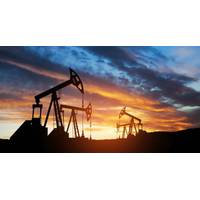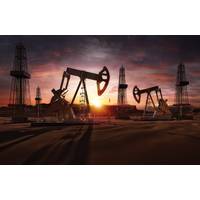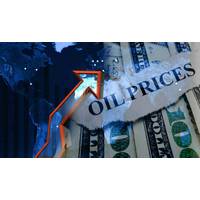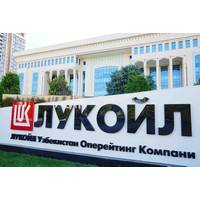Rosneft Oil Refinery Warns of US Sanctions

Management at a Russian-owned oil refinery in Germany have privately warned Berlin that U.S. sanctions are hurting its business and threatening fuel supply for the country's capital and the region, according to correspondence seen by Reuters.In a January letter, management of the PCK Schwedt refinery, controlled by Rosneft, made an "urgent appeal" to economy and energy minister Katherina Reiche to resolve a standoff with the United States over the refinery's future.The letter outlines escalating problems at the refinery, which fuels nine out of 10 cars in Berlin…
Energy Commissioner: EU's Russian import ban is legal and will stop 'blackmail,'
Dan Jorgensen, the EU's Energy Commissioner, told reporters on Monday in Lisbon that the decision to ban Russian imports was "100% legal", adding that it would prevent Russia weaponizing energy. Last week, European Union countries approved a law that will ban Russian gas imports until late 2027. This is a concrete step towards a political commitment to sever?energy relations with Moscow four years after Russia’s?full scale invasion of Ukraine. EU ministers approved this measure despite Hungary and Slovakia's opposition. Bulgaria abstained, and Hungary plans to contest it before the EU court. Jorgensen stated that Hungary is free to challenge this?law at court.
Oil Prices Stabilize as Russia-Ukraine Peace Hopes Fade, Yemen Tensions Rise

Oil prices were steady in choppy trade on Tuesday as investors weighed dented hopes of a Russia-Ukraine peace deal and rising geopolitical tensions in the Middle East around Yemen.Brent crude futures for February delivery, which expire on Tuesday, were up 3 cents, or 0.05%, at $61.97 a barrel at 1:18 p.m. EDT. The more active March contract was down 12 cents or 0.2% at $61.37.U.S. West Texas Intermediate crude fell 6 cents, or 0.1%, to $58.02.The Brent and WTI benchmarks settled more than 2% higher in the previous session as Saudi Arabia launched airstrikes against Yemen and after Moscow accused Kyiv of targeting a Russian presidential residence…
Oil Prices Fall on Looming Supply Glut

Oil prices fell by more than $1 a barrel on Friday as investors weighed a looming global supply glut, while also keeping an eye on a potential Ukraine peace deal ahead of talks this weekend between Ukrainian President Volodymyr Zelenskiy and U.S. President Donald Trump.Brent crude futures fell $1.13 or 1.82% to $61.11 per barrel by 1:14 p.m. EDT. U.S. West Texas Intermediate (WTI) crude fell $1.13 or 1.94% to $57.22.While supply disruptions have helped oil prices rebound in recent sessions from their near five-year low on December 16, they are on track for their steepest annual decline since 2020.
Oil Prices Rise as US Continues Tanker Interceptions Offshore Venezuela

Oil prices settled higher on Monday after the U.S. Coast Guard tried to intercept an oil tanker in international waters near Venezuela a day earlier, and Ukraine damaged two vessels and piers in Russia, raising the risk of oil supply disruptions.Brent crude futures gained $1.60, or 2.7%, to settle at $62.07 a barrel, while U.S. West Texas Intermediate crude futures rose $1.49, or 2.6%, to settle at $58.01 a barrel.The U.S. Coast Guard tried to intercept an oil tanker on Sunday that U.S. officials said is part of Venezuela's illegal sanctions evasion, the third such operation this month. The pursuit followed U.S.
Putin warns about the risks to top oil producers in EU
Vladimir Putin, the Russian president, warned that international reserves held by the top oil producers of Europe could be at risk after discussions between EU leaders regarding using Russian assets to fund Ukraine. Putin's remarks targeted?some countries that hold the largest reserves in the world, including?Saudi Arabia, the United Arab Emirates and?other OPEC nations. The EU decided to use cash on Friday, to "lend" 90 billion euros ($105billion) to Ukraine to help finance Ukraine's defense against Russia over the next two-year period. Putin stated that seizure of Russian assets, which was he called a "robbery", would have grave consequences for EU members states.
Turkstream transactions are not subject to US sanctions, Hungary claims

Peter Szijjarto, Hungary's Minister of Foreign Affairs, said that the company operating TurkStream will be able to do business in Hungary?without problems? thanks to an agreement reached with Washington. Hungary continues to depend on Russian energy, despite the conflict in Ukraine and Western sanctions. This has prompted criticism from several European Union and NATO allies. Szijjarto, during a Facebook broadcast in Moscow, said that the TurkStream Pipeline will continue to run 'without interruption in the next?period regardless of any legal or?financial attack.
Sources say that India's ONGC is moving closer to retaining 20% of the Sakhalin-1 project in Russia.
Three sources familiar with this matter have confirmed that India's Oil and Natural Gas Corp. will pay into Russia’s Sakhalin-1 abandonment fund using the frozen dividends of Indian companies to retain a 20% stake in the Sakhalin-1 project. ONGC Videsh Ltd., the overseas investment arm for India's largest explorer ONGC and other state-run Indian firms, have been unable to repatriate around $800 million of dividends on stakes in Russian assets, according to industry sources. Sources said that ahead of the visit by Russian President Vladimir Putin to New Delhi…
Prices remain stable as the supply is strong and peace talks in Ukraine fail.
The Dutch and British wholesale prices of gas were stable on Wednesday morning. They were close to a 19-month low as the peace talks between Russia, the U.S. and Ukraine on ending the conflict in Ukraine failed to find a solution and gas supplies remained strong. LSEG data shows that the benchmark Dutch front-month contract was lower by 0.16 euros at 27,85 euros per megawatt (MWh) at $9.50/mmBtu at 0924 GMT. The contract reached an intraday low on Tuesday of 27,53 euros/MWh, a rate not seen since the middle of April 2024. The British day-ahead contracts was down by 0.05 pence to 72.30p/therm.
Sources claim that Fedun, the co-founder of Lukoil, has sold his stake to the company.
Three sources and data show that Leonid Fedun sold his $7 billion stake in Lukoil. This marked the end of a 30-year journey which made Lukoil an international force, but saw it recently shrinking rapidly under sanctions. Lukoil, which had avoided Western sanctions for months over Russia's invasion in Ukraine, was severely hit by Western sanctions and now is selling its foreign assets. Analysts have long suggested that the company could be a target for Rosneft - a state-controlled competitor, which is now also subject to Western sanctions. Fedun, a Ukrainian born in Monaco, sold his 10% stake to Lukoil at the beginning of 2025.
Lukoil to Sell International Assets

Russia's Lukoil is selling its international assets after the U.S. imposed sanctions on the company.Washington refused to approve the sale of assets to Swiss commodity trader Gunvor, throwing Lukoil's operations in disarray and leading to a scramble of potential buyers.The U.S. Treasury cleared potential buyers to talk to Lukoil until December 13. They will need separate approval for specific deals. U.S. oil major Chevron is studying options to buy some global assets of Lukoil, sources have said. U.S. private equity firm Carlyle is also exploring options.Below are details about Lukoil's international assets:ESTIMATED VALUELukoil's international assets…
Russia's Lukoil talks to potential foreign buyers about its assets
Lukoil, Russia's second largest oil producer, said it was in talks on Friday with potential buyers for its foreign assets after sanctions were imposed by the UK and US last month and a deal made with Gunvor Trading House collapsed. The specific deal would be announced once the final agreements had been reached and all regulatory approvals obtained. The company wants to maintain the operation of assets even after they are sold and transferred to new owners. It will also save jobs and avoid disruptions to energy supply and work in the countries where it is present. Last month, the Office of Foreign Assets Control of the U.S. Treasury announced a new program.
GERB leader: Bulgaria could receive a six-month delay in US sanctions
Local media reported that Boyko Borissov of the GERB, the leader of the coalition's leading party, could have secured a six-month delay of U.S. sanction against Lukoil oil refinery. Last month, the U.S. Treasury Office of Foreign Assets Control imposed sanctions against Lukoil, and Rosneft, Russia's largest oil companies. This increased pressure on Russian president Vladimir Putin to stop Moscow's war with Ukraine, and threatened their sprawling operations throughout Europe. The U.S. sanction, which is due to take effect on November 21, has raised concerns over fuel supplies in Bulgaria ahead of winter.
Ukraine's fight for money and reform is necessary to survive the 'forever-war'
Since mid-2024, residents of Pokrovsk and Ukrainian officials have stripped the town of everything valuable: library books, beds for hospitals, industrial equipment - everything that once supported the bustling settlement with more than 60,000 inhabitants in the eastern Donbas region of Ukraine, which is mainly Russian speaking. Pro-Kremlin feeds on social media showed that several hundred Kremlin troops were entering the town this week. Many of them appeared to be riding motorcycles or in battered trucks. The likely fall of Bakhmut, the first major Ukrainian town since 2023, comes at a difficult time for President Volodymyr Zelenskiy's administration.
The Bulgarian Parliament overturns the presidential veto regarding Lukoil refinery Takeover
The Bulgarian Parliament overruled the veto of the president on Thursday on legislation that would allow the government to sell Lukoil’s oil refinery to protect the asset from impending U.S. sanctions. Last month, the U.S. Treasury Office of Foreign Assets Control, along with Britain, imposed sanctions on Lukoil, and Rosneft - Russia's largest oil companies - to increase pressure on Russian president Vladimir Putin and threaten their operations in Europe. Last week, lawmakers approved changes that would give a commercial manager appointed…
Kremlin: Putin and Tokayev will discuss gas projects, US sanctions against Russian oil and other issues.
The Kremlin announced that Russian President Vladimir Putin will meet with Kazakh President Kassym Jomart Tokayev in Moscow to discuss gas projects, as well as the impact of U.S. sanctions against Russian oil companies. Dmitry Peskov, Kremlin spokesperson, said that Putin was also interested in hearing about the talks Tokayev held last week with Donald Trump and other Central Asian presidents. Peskov responded that the two leaders will discuss the impact of U.S. economic sanctions on Russian oil giants Lukoil & Rosneft. "Our trade and economy cooperation with Kazakhstan has many facets." It is a broad-based cooperation that covers almost every aspect of the economy.
Source: Berlin wants to protect Rosneft Germany's arm from US sanctions

A person with direct knowledge about the discussions in the German government said that Germany was seeking exemptions from U.S. Sanctions on the German operations of Rosneft, the Russian oil company. This came after the banks warned they could be prevented from dealing with local energy suppliers due to the sanctions. Rosneft’s German business is owned by Russia but controlled by German authorities. It is Europe's largest economy's key oil supplier, routing the oil and refining it to fuel pumps and airports. After Russia's invasion of Ukraine in full force, the German branch of Rosneft was placed under government trusteeship.
Source: Indian refiners are reviewing Russian oil contracts following US sanctions

A source with first-hand knowledge of the situation said that Indian state refiners were reviewing their Russian oil trading documents to make sure no supplies would come directly from Rosneft or Lukoil following the U.S. sanctions against the companies. Donald Trump, the U.S. president in his second term imposed sanctions against Russia related to the Ukraine for the first in his tenure. He targeted oil companies Lukoil & Rosneft in an effort to express his growing frustration with Russian President Vladimir Putin regarding the war in Ukraine. According to a Wednesday press release, the U.S.
US sanctions Russian oil companies Rosneft, Lukoil

As his frustration with Russian President Vladimir Putin grows over the war, U.S. president Donald Trump imposed sanctions against Russia on Wednesday for the first times in his second term. He targeted oil companies Lukoil & Rosneft. The U.S. Treasury Department announced that it was ready to take additional action, as it called upon Moscow to immediately agree to a ceasefire during Russia's conflict in Ukraine which began in February 2020. Trump has made a significant policy shift by imposing sanctions against Russia. He had previously not sanctioned Russia for the war, but instead used trade measures.
Fico, the PM of Slovakia, says that Slovakia is likely to support a new EU sanctions package against Russia
Robert Fico, the Prime Minister of Slovakia, said that the country, which had been a skeptic about the 19th package of sanctions against Russia from the European Union, will now support the measures, provided its demands are met at the summit this week between the leaders of the EU. On Thursday, EU leaders will meet to discuss the war in Ukraine as well as European defense. The EU has condemned Russia for its invasion of Ukraine, and demanded that it make proposals on how to reduce the negative impact of climate targets on automakers and the high prices of electricity in the Union.